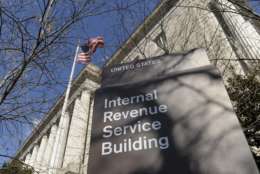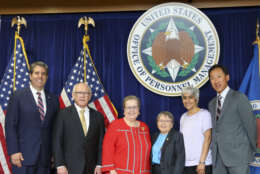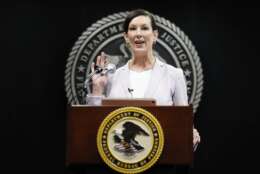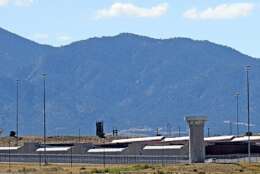Hiring/Retention
-
As the military continues to face serious recruiting challenges, the House's versions of its 2024 spending bills would raise military pay by more than 40 percent for some junior enlisted ranks.
June 16, 2023 -
As the federal government struggles to find ways to recruit new talent and retain current employees, some agencies are finding success through diversity, equity, inclusion and accessibility (DEIA) working groups.
June 09, 2023 -
Now back from space, three NASA astronauts have a new mission: to help recruit the next generation of federal employees.
June 09, 2023 -
Traci DiMartini, stepping down from her role as chief human capital officer at the General Services Administration, will move to IRS at the end of June.
June 09, 2023 -
A new executive order includes roughly 20 provisions the Biden Administration says are meant to increase federal agencies hiring and retention of military spouses.
June 09, 2023 -
With an early start to wildfire season already underway, agency officials warn major attrition of federal wildland firefighters is coming, unless there are permanent pay and workforce reforms.
June 08, 2023 -
The State Department, facing a historic increase in passport applicants, is looking to ramp up hiring and modernize its IT systems to drive down wait times.
June 07, 2023 -
The Space Force offers guardians an alternative to physical fitness tests with a new holistic health program.
June 06, 2023 -
Like many agencies, DHS is trying to recruit new tech talent. But the agency also wants to advance professional development opportunities for its existing IT specialists.
June 02, 2023 -
OPM is trying to give CHCOs more opportunities to offer feedback on planned policy changes, as long-standing federal recruitment challenges endure.
May 30, 2023 -
The Marines have a plan to train their future force and increase retention with a variety of new initiatives.
May 30, 2023 -
The Defense Department says it doesn't favor adding its workforce to OPM's new special salary rate for IT and cyber employees, largely for cost reasons. But it does want to expand its own special pay system known as the Cyber Excepted Service.
May 26, 2023 -
All week the Federal Drive has examined the Bureau of Prisons, which ranks as, "The Worst Place to Work in the Federal Government," according to the annual listing derived from employee viewpoint survey results and compiled by the Partnership for Public Service. To finish the series, Federal Drive host Tom Temin talks with Federal Bureau of Prisons Director Colette Peters, who has been on the job for almost a year
May 26, 2023 -
Tom starts with the notion that the federal correctional facility is the basic unit in the Bureau of Prisons. Tom's guest is a corrections consultant, who served in the Senior Executive Service and as warden of ADX Florence, the system's most secure prison. The Colorado facility is also known as Super Max.
May 24, 2023 -
The VA is setting a systemwide goal to have every network using at least half of PACT Act hiring authorities implemented by the end of the year.
May 22, 2023















